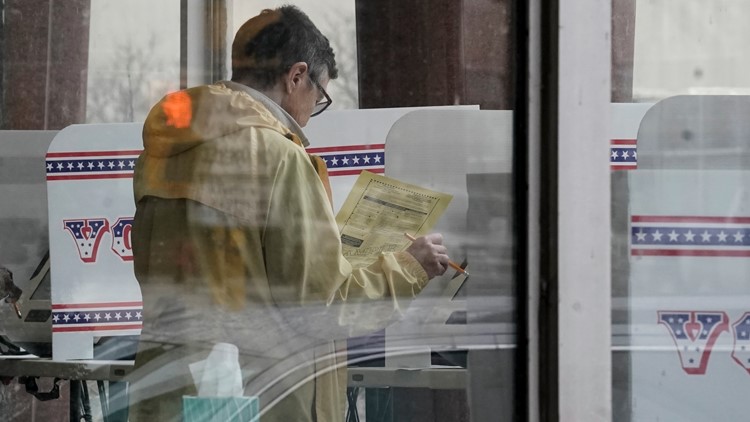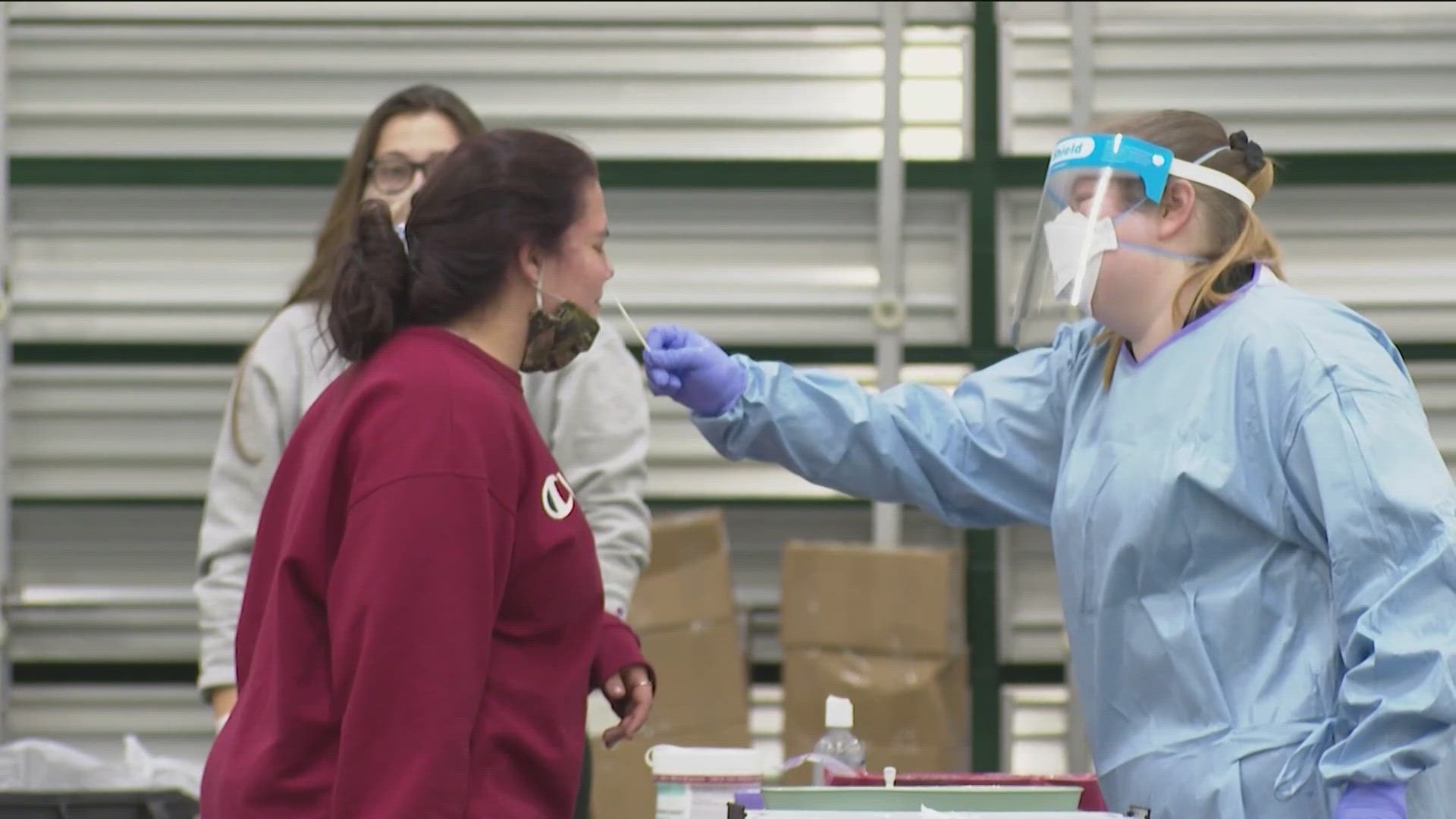MADISON, Wis. — Even with concerns over COVID-19 running high and a "Safer at Home" order in place, Wisconsin's top election official believes hundreds of thousands of voters will likely be heading to the polls Tuesday, April 7 for the state primary.
Wisconsin moved forward Monday with plans to hold in-person voting for its presidential primary on Tuesday amid the coronavirus pandemic with help from National Guard members staffing the polls, even as the U.S. Supreme Court weighs whether to intervene.
“How and where you vote may have changed because of COVID-19,” said Meagan Wolfe, Wisconsin’s chief elections official. “Local election officials are prepared for Election Day with sanitation supplies and have been trained on social distancing procedures and other guidance developed with a public health official. Now, we’re asking voters to be careful and patient if they go to the polls on Tuesday.”
Besides the Democratic presidential primary between Bernie Sanders and Joe Biden, there are hundreds of general elections for local offices, as well. Statewide, there‘s also a contested state Supreme Court election.
Democratic Gov. Tony Evers, who had originally pushed for the election to proceed as planned, on Friday changed course and asked the Republican-controlled Legislature to extend absentee voting until May 19 and have it all be done by mail. Republicans ignored the request.
Wolfe offered these reminders to voters who do plan on visiting their polling places.
- Because of poll worker shortages, your polling place may have changed due to consolidation. Before heading out to vote, please double-check your polling location at myvote.wi.gov. Click “Find My Polling Place.”
- Wash your hands before heading to your polling place on Election Day. Hand hygiene is essential for a safe voting experience for everyone at the polls.
- Wash or sanitize your hands again when arriving at your polling place and before voting. A 70% alcohol spray solution will be available at most polling places.
- Things will look different at your polling place. Social distancing and public health related changes have been made to each polling place for this election.
- Please be patient when voting at the polls. The public health procedures being used will slow down some parts of the process when you have to interact with poll workers.
- You may be asked to line up outside your polling place or voting area to ensure only a safe number of voters are in the voting area at one time.
- Social distancing is essential even at your polling place on Election Day. There will be procedures in place to allow for six feet between voters and poll workers to ensure a safe voting experience for everyone.
- Please keep your face-to-face interactions brief with both poll workers and other voters. We want to limit the risk for everyone in the process on Election Day.
- If you are ill and still need to vote on Election Day, curbside voting options are available.
- If you received an absentee ballot, you can return it at your polling place on Election Day if you have not yet returned it to your municipal clerk’s office. The deadline to return absentee ballots to the clerk’s office is 4 p.m. on Monday, April 13.
The Wisconsin election is being viewed as a national test case in a broader fight over voter access in the age of coronavirus with major implications for the presidential primary contests ahead — and possibly, the November general election.
While several states had scheduled primaries in recent weeks, Wisconsin is alone in moving ahead with in-person voting in the midst of the pandemic. The move is even more extraordinary given that the state's Democratic governor has issued a "Safer at Home" order and closed all nonessential businesses. Dozens of polling places have been closed.
Evers and Republicans initially agreed that it was imperative for the election to proceed because hundreds of local offices are on the ballot Tuesday for terms that begin in two weeks. There is also a state Supreme Court election putting the conservative incumbent against a liberal challenger.
The state and national Democratic parties, along with a host of other liberal and voter advocacy groups, filed federal lawsuits seeking a delay in the election and other changes. A federal court judge just last week handed Democrats a partial win, allowing for absentee ballots to be counted through April 13, delaying the reporting of election results until then. But the judge, and later a federal appeals court, declined to postpone the election.
Republicans have appealed to the U.S. Supreme Court, asking that it not allow absentee ballots to be counted beyond Tuesday. The court was considering whether to take action.
Meanwhile, mayors across the state, including Democrats in Wisconsin's two largest cities of Milwaukee and Madison, have urged Evers not to hold the election out of public safety concerns. Evers has said he doesn't have the legal authority to do that and has instead called on the Legislature to make it a mail-in election as was done in Ohio.
Thousands of poll workers have said they won't work on Tuesday, leading Milwaukee to reduce its planned number of polling sites from 180 to just five. The National Guard was distributing supplies, including hand sanitizer, to polling sites across the state. In Madison, city workers were erecting plexiglass barriers to protect poll workers and voters were encouraged to bring their own pens to mark the ballots.
As of Monday morning, a record-high 1.2 million absentee ballots had been requested and more than 724,000 had been returned. Democrats fear that if the Supreme Court reverses the judge’s ruling, and cuts short the amount of time those ballots can be returned and still counted, thousands of voters will be disenfranchised and not have their votes counted.
RELATED: COVID-19 pushes lifestyle change



